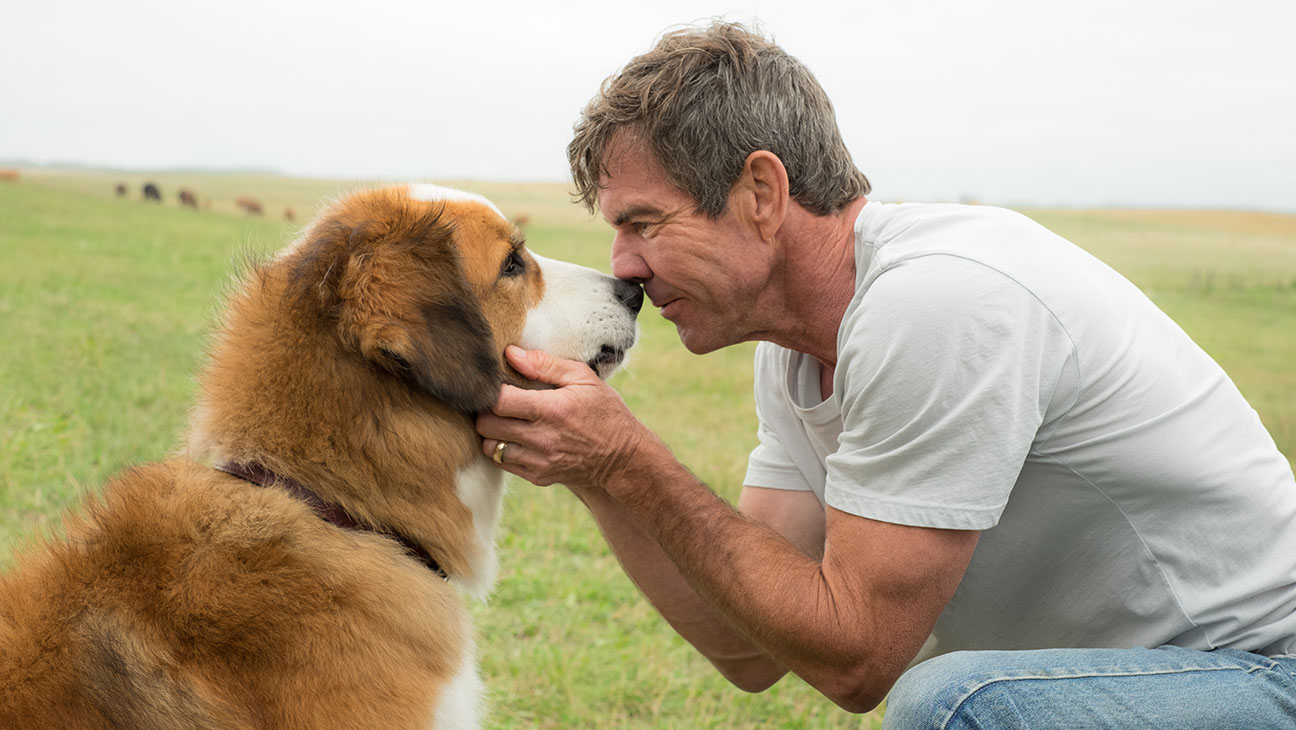
by Emily Howsden | Jul 30, 2019
Today is the beginning of my last week of work at the Baptist Messenger and Baptist General Convention of Oklahoma. What a time of growth my time here has been!
One thing I’m exponentially grateful for is the opportunity to grow as a writer and journalist. I’ve met people whom I will call lifelong friends and experienced things I’ll fondly look back on for years to come.
I’ve written countless articles and blogs, I’ve taken thousands upon thousands of pictures, I’ve traveled many miles and learned from some of the best people in the business of storytelling.
I’ve experienced history in the making as I covered events like the 100th Anniversary of Falls Creek and historical votes at the Southern Baptist Convention.
I was able to watch as Oklahoma Baptist Disaster Relief provided aid to those affected by Hurricane Harvey, for weeks and months, as well as the countless other times they have served those in need.
I have met countless Oklahoma Baptists and been privileged to tell their stories of faith, perseverance, endurance, discipleship and overall how they make the world a better place.
I’ve worked alongside people who are world changers and champions for spreading the Good News of the Gospel to people in every small Oklahoma town to the ends of the earth.
I’ve had my eyes opened to different ways of thinking, some good and some not so good, and that has helped me grow as a journalist in the best way possible. A good journalist tells a story from every side, not just their side.
I’ve stood many mornings at the editing boars, with pen in hand, practicing the art of copy editing and hearing why the Messenger WILL NOT use the oxford comma, even if it goes against AP style.
I’ve laughed and I’ve held back tears. I’ve learned and
grown, not only as a journalist but as a person and professional.
For all of these experiences and the countless others, I’m extremely grateful for the opportunity to work as a staff writer and digital content coordinator at the Baptist Messenger and Baptist General Convention of Oklahoma.
Rest assured, I will take all that I’ve learned and apply it
to my new career, teaching—of course I will teach the Oxford Comma, that skill
I will leave where I found it, in the Baptist Building.

by Michael Foust | May 17, 2019
The movie A Dog’s Journey (PG) opens this weekend, following a dog named Bailey as he cares for a girl named C.J.
Bailey is a dog who wouldn’t change a thing about his life. He lives on a huge farm. He rides to town in a big pickup truck. His owners, Ethan and Hannah, treat him like their own child.
“I feel like the luckiest dog in the world.”
But not everything is rosy in Bailey’s world.
A few months ago, Ethan’s adult son died in a tragic car
accident, leaving behind a widow named Gloria to raise a baby daughter, C.J.
She and C.J. moved in with Ethan and Hannah, her in-laws.
And after a misunderstanding and argument, she moved out, promising never to
return.
“She’s my baby — not yours,” Gloria said before
leaving.
Then Bailey became terminally ill. Then he died. Then Gloria
started drinking, leaving C.J. to fend for herself.
It may sound like the lyrics to a honky-tonk tune, but this
story has a happy ending.
Bailey was reincarnated as another dog, Big Dog, and then
another dog, Molly, and then another dog, Max. Each time, he was sent to care
for C.J., who found his companionship priceless through her childhood and young
adult years.
The movie A Dog’s
Journey (PG) opens this weekend, starring Dennis Quaid (The Rookie) as Ethan, Marg Helgenberger
(Erin Brockovich) as Hannah, Betty
Gilpin (GLOW) as Gloria and Josh Gad
(Beauty and the Beast) as the voice
of Bailey.
The film is based on a book by W. Bruce Cameron and a sequel
to the 2017 film, A Dog’s Purpose
(2017), which also was based on a Cameron novel.
It is aimed at children and families and — apart from the
worldview — has few other non-family-friendly elements for Christian parents.
For lovers of pets, it’s a fun flick.
Yet the movie’s strong focus on reincarnation isn’t a small
problem.
Let’s examine the details.
Warning:
minor/moderate spoilers!
(Scale key: none,
minimal, moderate, extreme)
Violence/Disturbing
Minimal. We see C.J., as a toddler, walk into a fenced-in
area with an out-of-control horse. (She is rescued.) As a teenager, C.J. dates
a boy who grabs her arm when she tries to leave. He doesn’t hit her, but part
of her clothes tear. The same boy later chases her in his truck, resulting in
her crashing her car. (She survives, but the dog dies.) C.J. dates another boy
who grabs her arm when she tries to leave. (She has a tendency to date
irresponsible men.)
Sexuality/Sensuality/Nudity
Minimal. It’s implied that Gloria lives with one or two men,
although we never see them kiss. (The movie has no bedroom scenes.) When C.J.
asks her if one of her boyfriends is nice, Gloria responds, “They always start
off nice.” Gloria wears one or two outfits showing too much skin. C.J. kisses a
boyfriend passionately in the backseat; the scene cuts away. She moves to the
city, where she moves in with a boyfriend. When that doesn’t work out, a
platonic male friend lets her stay with him. She kisses a man at the end of the
film.
Coarse Language
None/minimal. One possible OMG. One other misuse of “God.”
At least three to four instances of Bailey referencing his or another person’s
“butt.”
Other Positive
Elements
The love that Ethan and Hannah show for Gloria and C.J. is
touching.
When Gloria moves out, Ethan and Hannah display patience and
never lose hope that the relationship will be restored.
Other Stuff You
Might Want To Know
Gloria is a young widow whose husband died. After he passed
away, she becomes an alcoholic and an irresponsible mother who often leaves
C.J. home alone at night while dating. Gloria often drinks glasses of wine.
C.J. impersonates her mom during a phone conversation and
lies in order to get Bailey. A few minutes later, she lies again. (Eventually,
she is caught in her lies, but her mother lets her keep the dog.)
C.J. goes to a party where beer is served. (She asks her
boyfriend to take her home.) Two teenagers exchange a package that looks like
drugs. C.J. is arrested but released.
We see several arguments. Gloria argues intensely with Ethan
and Hannah.
Life Lessons
We learn about the power of words — both positively and
negatively (Gloria moves out after she is offended by something Hannah says.)
We learn that bad choices lead to bad consequences (C.J.
opts to date an irresponsible man.)
We also learn about unforgiveness and bitterness (Gloria
moves out of Ethan and Hannah’s home. Later, C.J. moves out of Gloria’s home
and pledges never to return.) Yet we also learn about redemption. (The movie
has a happy ending.)
Worldview/Application
What is the purpose of dogs? Of pets? Bailey has an idea.
“Loving people is my ultimate purpose,” Bailey says.
Perhaps he’s onto something.
When you watch a joy-filled child chase a dog or an elderly
person pet one, it’s easy to agree with Bailey.
Pets, after all, are one of God’s great gifts to mankind.
Why else would He have created certain animals that are so easily domesticated
and that treat you like a king? They provide companionship. They remind you of
the simple pleasures of life. They make you … happy.
It’s just too bad that the story is wrapped in a
pro-reincarnation plot.
The Bible teaches that we die once, and only once (Hebrews
9:27, Matthew 25:46). The concept of reincarnation is unbiblical, for both
humans and animals.
And while a good case can be made that animals will be in
heaven (Isaiah 11:6, 65:25), the Bible is silent on whether specific pets will
be there.
What Works
Bailey’s interaction with people. It’s a joy to watch.
What Doesn’t
The scenes showing men getting physical with C.J. They don’t
belong in a film geared toward families.
Discussion
Questions
1. What does the Bible say about reincarnation?
2. C.J. initially did not want to forgive her mother. Have
you ever harbored feelings of unforgiveness? What does Scripture say about
forgiving others? Why is it hard sometimes?
3. Gloria and Hannah have an argument early in the movie.
Who was right? Who was wrong? Why?
4. Why is cohabitation (living together before marriage)
wrong — both biblically and practically?
Entertainment rating: 3 out of 5 stars. Family-friendly rating: 3.5 out of 5
stars.
Rated PG for
thematic content, some peril and rude humor.

by Michael Foust | May 4, 2018
Isle of Dogs (PG-13) is a thought-provoking, stop-action movie that’s rich in symbolism aimed directly at adults.
Atari is a pensive, 12-year-old dog-loving boy living in a city where dogs are banned.
It hasn’t always been this way, though.
Long ago, the people of Megasaki City loved dogs. Then a virus spread through the dog population, sparking a fear that it might jump to humans. It even led the authoritarian mayor to ban all dogs to “Trash Island,” even though scientists were closing in on a cure.
Among the expelled dogs was Atari’s beloved canine, Spots, who was given to him when the mayor – Atari’s uncle – adopted the boy.
But Atari isn’t giving up. He steals a small plane and flies to Trash Island in hopes of finding Spots. Then his plane crashes on the island. Then the mayor sends out a search party. Then the mayor threatens to kill all dogs. Can Atari change the mayor’s view of canines before the government wipes them out?
It’s all part of director Wes Anderson’s film Isle of Dogs (PG-13), a thought-provoking, stop-action movie that is aimed more toward adults than children. It stars newcomer Koyu Rankin as Atari and Liev Schreiber (X-Men Origins: Wolverine) as Spots, as well as an all-star cast as the other dogs: Bill Murray as Boss, Jeff Goldblum as Duke, Bryan Cranston as Chief, and Scarlett Johansson as Nutmeg.
Warning: minor/moderate spoilers ahead!
(Scale key: Minimal, moderate, extreme)
Violence/Disturbing
Moderate. The violence is cartoonish and mostly played for laughs. Dogs fight for food in a humorous scene. Atari’s plane crashes, and one of the dogs discusses whether they should eat him. Dogs fight humans in a dust cloud reminiscent of a Looney Tunes cartoon. A helicopter crashes, presumably killing the occupants. We see a fish and crab – each alive – cut up for a meal. Four dogs accidentally enter an incinerator. We also see a graphic (albeit cartoonish) operation.
We hear discussion of cannibal dogs. Dogs talk about a canine who committed suicide. We see the bones of a dog who presumably starved to death in a cage.
Sexuality/Sensuality/Nudity
Minimal. The mayor’s backside is seen as he exits a hot tub. The dogs discuss a dog being “in heat” and of dogs mating. Nutmeg, in a conversation with a male dog, talks about “tricks” she can perform. She’s referencing dog show tricks, although it could have a double meaning. In another scene, she says, “I wouldn’t bring puppies into this world.”
Coarse Language
Minimal. D—n (2), SOB (1).
Other Positive Elements
Students rise up to oppose the “Anti-Dog” elements within the government. Later in the film, a member of the Anti-Dog wing performs a heroic action for Atari. We also see a mean dog turn nice.
Life Lessons
Atari and other characters deliver lessons on self-sacrifice, perseverance and unconditional love.
Worldview
Isle of Dogs is a dog movie that’s not really about dogs. Sure, if you say “Isle of Dogs” fast enough, it sounds like “I love dogs” – and that’s intentional – but the film is rich in symbolism aimed directly at humans, and specifically, the way humanity treats classes of people. But which classes of people? Which races? Which nationalities? Anderson, the director, doesn’t say.
Some will see parallels to 2018 politics, but Anderson began working on the film during the previous presidential administration. It’s just as easy to apply the film’s themes to the treatment of Jews in World War II or to African Americans in 1950s America. The mayor even sets up “displacement camps” for the dogs.
Besides, it shouldn’t matter which class of people the film is referencing, because no class should be treated that way. Every person bears the image of God (Genesis 1:26-27), and every person should be loved just as Jesus loved us (John 13:34). Our goal should be that of Galatians 3:28, “There is neither Jew nor Greek, slave nor free, male nor female, for you are all one in Christ Jesus.”
What Works
The use of stop action for an adult movie.
The humor and emotion. Anderson masterfully balances them.
What Doesn’t
Not applicable.
Discussion Questions
- Did you see parallels to history or modern-day politics? If so, where?
- What does Scripture say about racism? About treating one another?
- Do you like the use of stop-action films to convey adult messages? Why or why not?
Entertainment rating: 4 out of 5 stars. Family-friendly rating: 3.5 out of 5 stars.

by Brian Hobbs | Nov 14, 2013

C. S. Lewis
Having not been born yet, I can only imagine the trauma that people must have felt at the assassination of John F. Kennedy on November 22, 1963. Yet did you know that on that fateful day, another truly great man died? I refer to my favorite writer, C.S. Lewis.
While many are offering fitting tributes to the late President Kennedy on this 50th anniversary date, I wish to write one on Lewis. The atheist-turned-Christian has composed a collection of writings almost unparalleled in modern times.
Scholar, Christian apologist, public intellectual and author, Lewis was able to compose meaty works in the following genres: Poetry, children’s fiction, history, theology, science fiction and allegory. He mastered each of these genres and provided a body of works that has changed the lives of millions worldwide.
He is perhaps best known for his Chronicles of Narnia children’s books (I have reviewed some of those here). Yet his most important theological work is Mere Christianity, in my estimation. It is the most important because it teaches the landmark idea of the “trilemma.”
The “trilemma” forces people to reckon with the ministry, teachings and life of Christ in a real and honest way. Christ cannot be called a mere “good man” or “good teacher.” Lewis says this, “Christ either deceived mankind by conscious fraud, or He was Himself deluded and self-deceived, or He was Divine. There is no getting out of this trilemma. It is inexorable.”
Many honest agnostics have had their hearts softened by God through this Truth, and many, like Lewis, have come to Christ once having honestly come to grips with who He really is.
For those wanting to know more about this spiritual giant, who sought to unify Christians on the essentials so we would not depart on secondary matters, I suggest you watch the movie “Shadowlands,” which has Anthony Hopkins playing Lewis. I also recommend this new biography by Alister McGrath.
If you truly wish to get to know and enjoy Lewis, however, simply pick up any of his books and begin to read. I assure you, the day you meet up with Lewis through his writings will be a red-letter date in your life.




